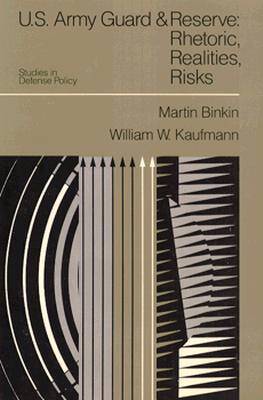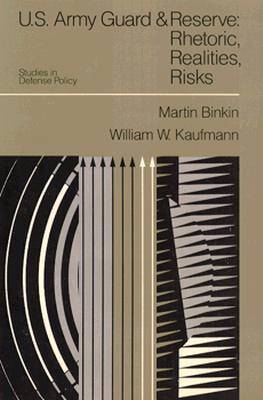
- Afhalen na 1 uur in een winkel met voorraad
- In januari gratis thuislevering in België
- Ruim aanbod met 7 miljoen producten
- Afhalen na 1 uur in een winkel met voorraad
- In januari gratis thuislevering in België
- Ruim aanbod met 7 miljoen producten
Omschrijving
In the nearly two decades since the Nixon administration decided to withdraw U.S. armed forces from Vietnam and to end their dependence on conscription, America's military institution has undergone substantial changes. One of the most pronounced has been the increased reliance on Army reserve components, which today shoulder unprecedented responsibilities for protecting the nations security. Of special importance have been the growing expectations about the capabilities and readiness of the Army National Guard and the Army Reserve. Reserve components would now be among the first to be used in a range of possible conflicts--from limited contingencies involving rapid deployment forces to a major confrontation in Central Europe between NATO and the Warsaw Pact. This shift has been instituted with little public fanfare or debate yet the consequences could be dramatic and far-reaching. It raises the central question Binkin and Kaufmann address: How has greater reliance on Army reserves affected the nation's ability to protect its security?
"Specificaties
Betrokkenen
- Auteur(s):
- Uitgeverij:
Inhoud
- Aantal bladzijden:
- 176
- Taal:
- Engels
- Reeks:
Eigenschappen
- Productcode (EAN):
- 9780815709794
- Verschijningsdatum:
- 1/05/1989
- Uitvoering:
- Paperback
- Formaat:
- Trade paperback (VS)
- Afmetingen:
- 153 mm x 229 mm
- Gewicht:
- 244 g

Alleen bij Standaard Boekhandel
Beoordelingen
We publiceren alleen reviews die voldoen aan de voorwaarden voor reviews. Bekijk onze voorwaarden voor reviews.









